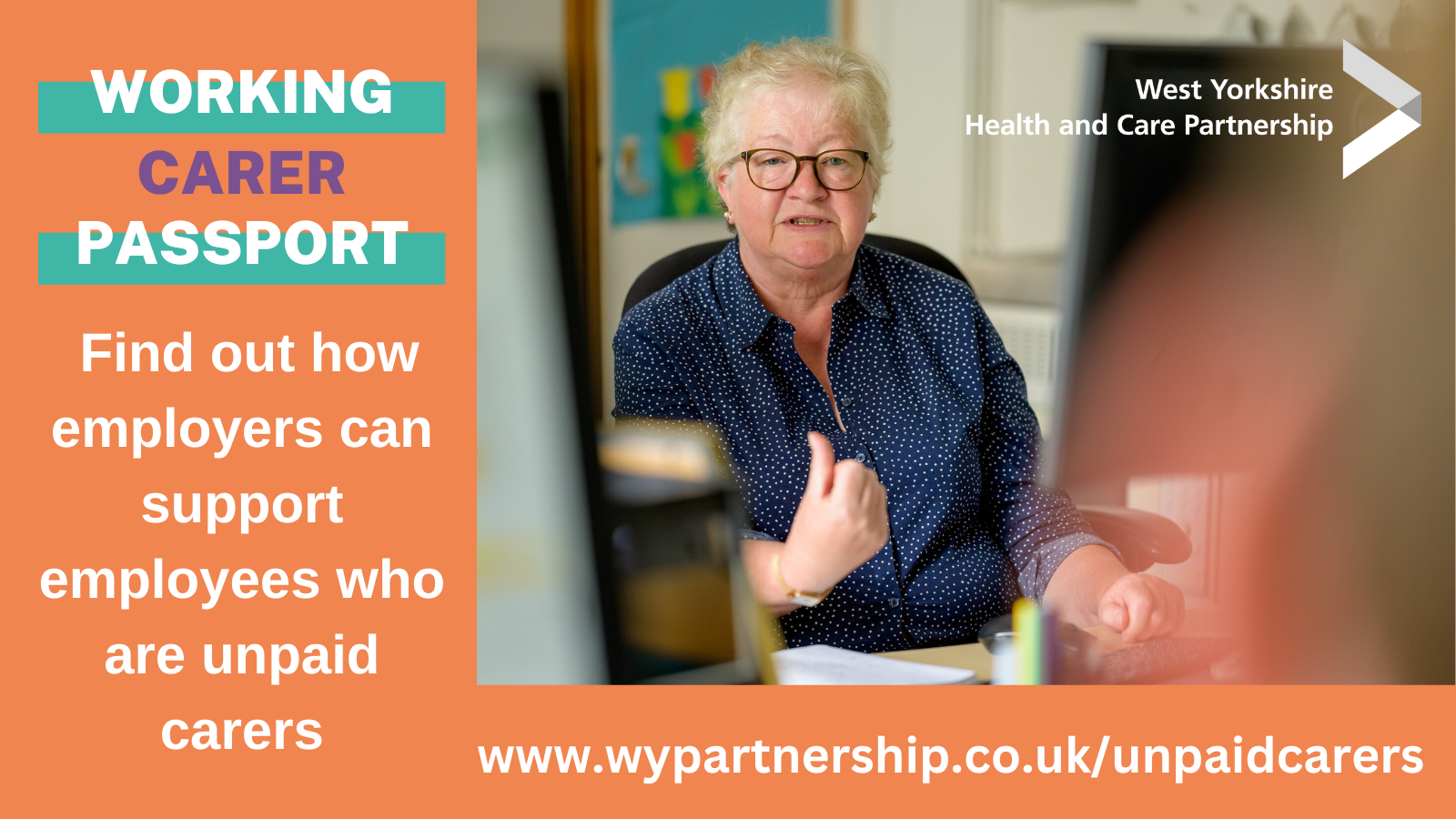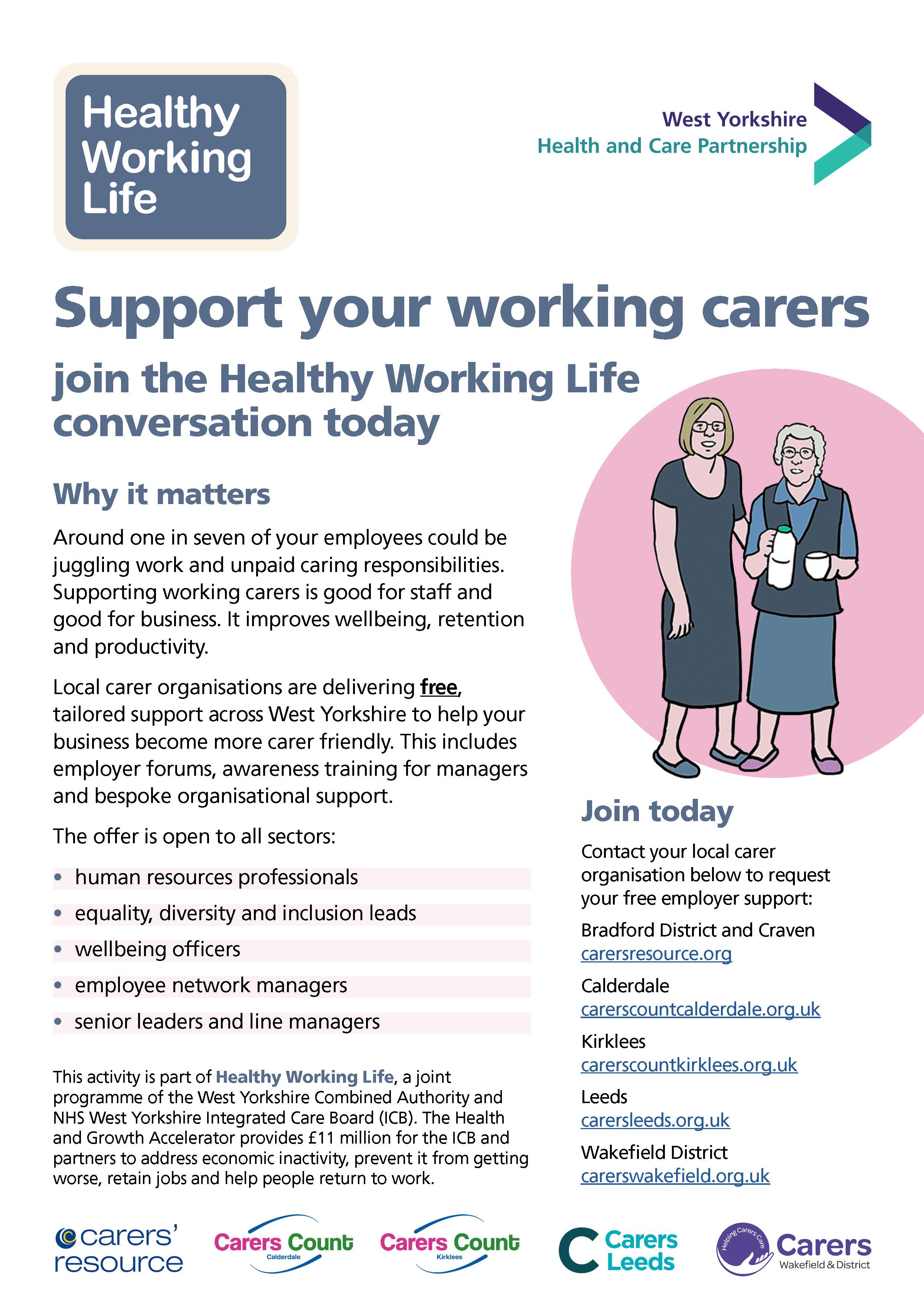Adoption of the Working Carers Passport launched in 2020
- This was across the West Yorkshire system in 2020, with the aim of supporting unpaid carers who were part of the NHS workforce in West Yorkshire.
- The General Practice Patient Survey suggests as many as 1 in 5 patients are unpaid carers, the NHS Staff Survey shows 1 in 3 NHS staff are unpaid carers.
- All local hospital trusts were invited to join a central project team.
- The outcome was to secure adaption of the working carers passport from all six acute trusts.
- Adaption of existing HR systems and processes were essential to achieving a successful outcome
- NHS England in their response to the pandemic highlighted the working carers passport as a key focus.
- West Yorkshire Health and Care Partnership introduced two new competencies into the NHS Electronic staff record system to enable employees to be identified as working carers and determine if they were holders of a passport.
- West Yorkshire Association of Acute Trusts and mental health trusts adoption of the passport secured national recognition by NHS within their 2020 NHS People plan with the passport set to reach 56,000 working carers across the NHS.
- Employee for carers membership was adopted by all six places.
- Awarded a commendation for the HSJ Workforce Initiative Award 2021
Reviewing and further embedding the Working Carers Passport:
- Plans are in place to review and further embed the working carers passport across the West Yorkshire system. This will include engagement with the workforce to raise awareness, information for managers and working with system partners to promote the Working Carers Passport scheme.




